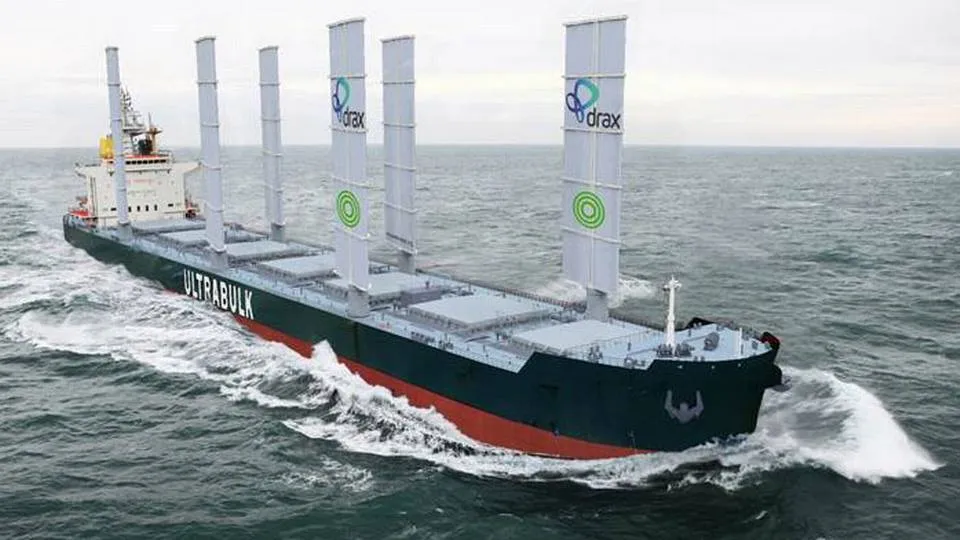
Another project related to sails in shipping is now underway, after Maersk Tankers in September sent a tanker ship out on its first voyage with two 30-meter high sails installed on board.
In a new project that involves Ultrabulk, among others, a series of stakeholders are now working to determine whether sails also represent a viable option for large dry bulk ships in a future when the global commercial fleet must, in the coming decades, reduce its greenhouse gas emissions significantly.
So far the project, a collaboration between four UK-based players and Ultrabulk, is in the early stages, with a feasibility study aimed at determining how sails can help reduce CO2 emissions when transporting biomass to one of the UK’s largest electrical power plants, owned by company Drax.
And an Ultrabulk ship is involved in the project as part of the concept development for a ship with sails, CEO Per Lange tells WPO.
“Our role in this is to contribute operation and practical input in an effort to determine where there are operational challenges when a ship has sails installed on board. We’re now going to look at the financial aspects of this,” he says.
Wind in dry bulk
As such, it is still too early to say anything about when and whether an Ultrabulk ships could be fitted with sails. The finances are the next step, and according to a press release, more news about the project could be announced in 2021.
Will play a part
Ultrabulk is using its /kamsarmax ships, in the range of 80,000 to 85,000 dwt, as the basis for the project.
“There are various reasons for this, but a significant factor is that as soon as you use smaller ships than that, you face an extra challenge, namely having cranes on board, and you don’t have that on panamax. So operationally it makes the most sense to look at panamax ships,” says Lange, adding that there are numerous challenges related to installed sails on a dry bulk ship.
These include the fact that sails must be able to fold down, to make room for cranes to work on the ships when they are berthed, but it is also a matter of ensuring stability when the ships are at sea, and so on.
Still, it is important for Ultrabulk to participate in a project like this. And it is not the only current such project the shipping company is part of, says Lange, though he declines to elaborate on what the other projects are about yet.
“It’s important for us as maritime players to play an active part in the development of new technology in order to meet the IMO’s targets. There is currently no financially viable technology available that can get us there, and as such, we have to develop something new.”
The IMO’s climate action plan, adopted by the member states in the spring of this year, operates with two targets at this point: first, a 50 percent reduction in greenhouse gas emissions in 2050 compared to 2008 levels. And second, that shipping’s greenhouse gas emissions must be reduced by 40 percent per kilometer by 2030.
Regardless of whether it happens or not, you always gain some knowledge from these kinds of studies. It may not be the perfect solution, but will provide some knowledge that one can continue to work on”
Per Lange, CEO, Ultrabulk
The project is headed by Diane Gilpin, CEO and founder of Smart Green Shipping Aliance (SGSA) and member of the British government’s Clean Maritime Council.
Like Maersk Tankers, SGSA also eyes significant potential in using wind technology on ships, before ultimately developing ships that emit zero greenhouse gases. Gilpin stresses that once the wind technology is developed, it will be free to use.
And even though the time frame for the new project is likely far off in the future, it does, no matter the outcome, make sense to participate in these kinds of projects, says Lange:
“Regardless of whether it happens or not, you always gain some knowledge from these kinds of studies. It may not be the perfect solution, but will provide some knowledge that one can continue to work on.”
English Edit: Daniel Logan Berg-Munch
Wind propelling Maersk Tankers’ oil transport
Ultrabulk notes the first consequences of looming trade war





